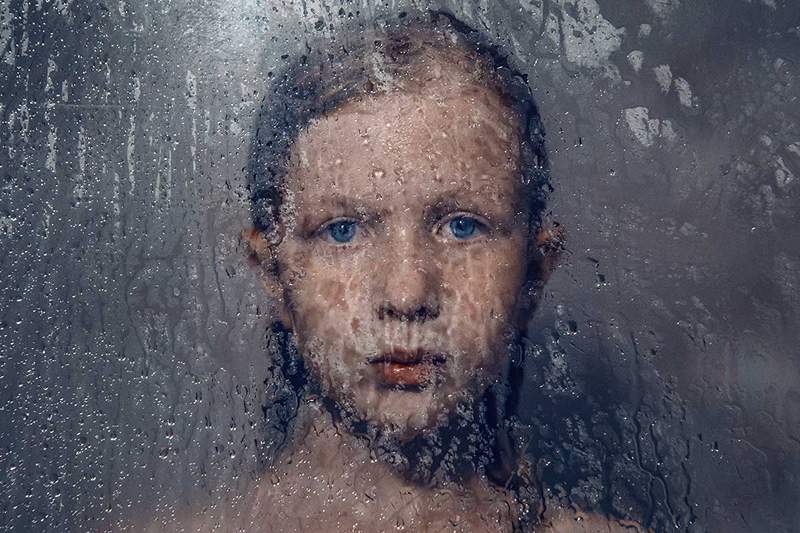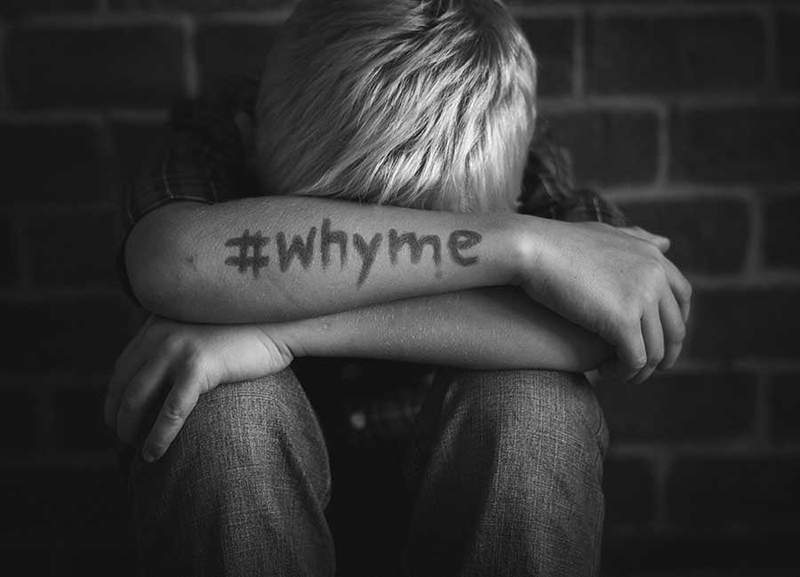Effects of child abuse in the brain

- 1594
- 207
- Herbert Ritchie
Child abuse is a serious problem that affects millions of children today. This is usually related to a society that normalizes violence as a parenting method to correct "bad behaviors". However, science has shown that raising with violence is unnecessary and the effects of child abuse in the brain are severe.
At the superficial level, it may seem that abuse has no consequence. However, The wounds are inside and over time, they can deepen. For that reason, it is essential to understand the negative effects of child abuse.
Content
Toggle- Child abuse, a world epidemic
- Effects of child abuse in the brain
- 1. Increase drug use risk
- 2. Alterations in cognitive development
- 3. Problems to face stressful situations
- 4. Higher prevalence of mental health problems
- How to prevent child abuse?
- References
Child abuse, a world epidemic
According to the World Health Organization (WHO), a quarter of adults worldwide experienced physical abuse in childhood. It should be noted that these figures are estimates based on demographic surveys from different countries. However, they do not exactly reflect the scope of this problem worldwide and in reality, it could be more serious.
In addition, it is estimated that every year at least 41.000 children under 15 die from homicide. Experts consider that these statistics could be higher, since many deaths are attributed to accidents erroneously.
Starting from the above, it is possible to affirm that childhood violence is a world -scale problem. It is also complex to explain, because multiple individual and group variables participate. For example, as stated at the beginning, it may happen that they are family patterns that are repeated. As it could also be due to some mental disorder suffered by the caregiver.
Effects of child abuse in the brain
Regardless of the cause of violence, the effects of child abuse in the brain are notable. AND, The more the abuse is prolonged, the deeper the alterations that cause in development will be. Next, we will see the most important consequences of childhood abuse.
1. Increase drug use risk
The National Institute on Drug Abuse (NIDA) published in 2019 an article on child abuse and its effects. Through research with neuroimaging, it was discovered that abuse alters neural networks in the cerebral cortex. On the one hand, it causes the centers responsible for emotional consciousness to be much more active than normal. Consequently, emotions take dominion over rational behavior.
On the other hand, the centers that participate in impulse control remain have little synaptic activity. So, As a result of abuse, people become more susceptible to acting according to their emotions and their impulse control is reduced. In this way, it increases the risk of falling into substance consumption.
2. Alterations in cognitive development
Amores-Villalba and Mateos-Mateos (2017) published a review of the neurobiology of child abuse. Thus, they found that one of the effects of child abuse in the brain were important deficits in cognitive development. On one side, significantly affects memory and attention, especially in cases of sexual and psychological abuse.
In addition to this, it alters the normal development of language, more depth in cases of emotional negligence and abandonment. Following this line, it is observed that battered minors also have a cognitive index less than expected for their age.
Similarly, the evidence indicates that executive functions (judgment, planning, self -control, decision making, etc.) are altered. Therefore, It can be seen that child abuse has serious consequences on global cognitive development.
3. Problems to face stressful situations
Marques-Feixa et al. (2021) conducted a study on the effects of child abuse in the brain. More specifically on the hypothalamic-hypofysarian-adrenal axis, an important region in the coping of stress.

The results showed that adults who experienced child abuse have less cortisol activity. Remember that cortisol is a hormone that is secreted in stressful situations and active different mechanisms to face it. Therefore, if not segregated enough, the ability to respond to situations of potential danger is reduced.
4. Higher prevalence of mental health problems
Investigations indicate that child abuse produces Important changes at the morphological and neurochemical level in the brain. Thus, it is observed that those who suffered abuse are more likely to develop mental disorders. Among the most common problems are anxiety, depression and problems with impulse control.
 Perfectionism: Psychological vulnerability factor
Perfectionism: Psychological vulnerability factor How to prevent child abuse?
As already mentioned, child abuse is a world -scale problem and that is difficult to address by multiple factors. Preventing the effects of child abuse in the brain requires interventions from different areas. For example, it is essential that parents receive training on the raising of children and how to guarantee healthy development.
At the same time, more efficient actions are required to assess the situation of minors at risk. But, this only has its own challenges, as lack of funds from the government or laws that limit this possibility.
On the other hand, when the abuse already happens, it is essential to provide attention to the minor. In this way, it is possible to cushion the consequences you could have on your health. This covers both medical and psychological attention.
Finally, it is important that parents evaluate their parenting styles. The punishment is not a healthy alternative to teach good behavior, much less if it implies physical or psychological violence. Professional recommendation is to keep up respecting respect with limits and positive reinforcement.
References
- Amores-Villalba, a., & Mateos-Mateos, R. (2017). Review of the neuropsychology of child abuse: neurobiology and neuropsychological profile of victims of abuse in childhood. Educational Psychology, 23(2), 81-88.
- Marques-Feixa, l., Palma-Gudiel, h., Romero, s., Moya-Higueras, J., Rapado-Castro, m., Castro-Quintas, Á.,... & Fañanás, L. (2021). Childhood Maltreatment Disrupts HPA-Axis Activity Under Basal and Stress Conditions in A DOSE-Respire Relationship in Children and Adolescents. Psychological Medicine, 1-14.
- Nida.(2019). Child abuse modifies the architecture of the cortical network and can increase the risk of drug use.
- « Age or discrimination due to age 7 examples
- Narcissists, manipulators, psychopaths or Dark personalities in work »

